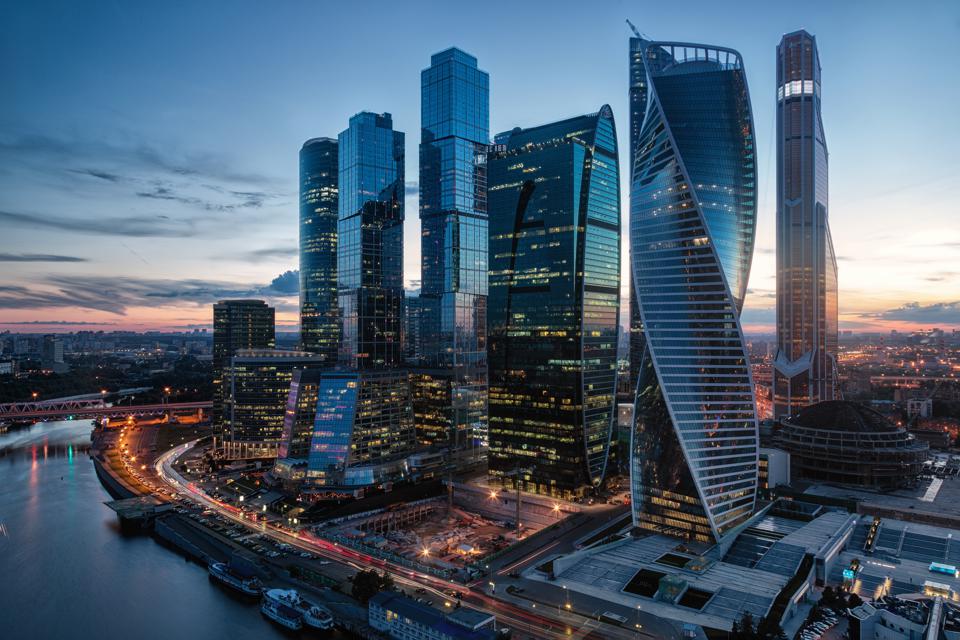What comes to mind when we think about today’s Russian economy? For me, and probably for many others as well, it is two words—oil and sanctions.
Russia has always been highly dependent on oil exports. However, in 2014, things took a turn for the worse as a sharp drop in oil prices combined with western sanctions imposed to punish Russia for invading Crimea pushed the country’s economy into a crisis. The Russian stock market plunged by 30% in 2014 and stayed pretty much flat in 2015. Despite the Russian Central Bank’s intervention, the Russian currency dropped from 33 rubles to the dollar in January 2014 to as low as 69 rubles to the dollar in February 2015.
Russia is no stranger to financial crises though—the financial crisis of 1998 had resulted in the Russian government devaluing the ruble and defaulting on its debt payments. Another crisis hit the Russian economy in 2008 and wiped off more than $1 trillion of market capitalization from its stock market.
But the 2014 crisis was different. It’s almost as if the Russian government decided that it had had enough. The crisis set into motion a series of corrective measures undertaken by Vladimir Putin’s government, measures that have since turned the Russian economy around and have positioned the country as one of the most stable emerging markets.
BEATING SANCTIONS
Over the past few years, the Russian government has taken steps to ensure that its economy is protected from fluctuations in oil prices and from external sanctions. The government introduced an import substitution policy that is aimed at improving the quality of Russian enterprises and reducing the country’s dependence on imports.
Russia, like China, has also created laws promoting home-grown technology companies versus global technology giants. This has led to local companies dominating the online markets of e-commerce and search.
In order to reduce the dependency on oil price volatility, Russia has started storing excess profits when oil prices are high so that these reserves can be spent when the prices are low.
All of these efforts have helped Russia position itself as a strong contender for outperformance among emerging markets. As of December 2020, Russia had the lowest government debt as a percentage of gross domestic product (GDP) when compared to 17 of the largest emerging markets. Russia’s debt percentage stood at 14%, compared to India’s 72% and Brazil’s 89%. Russia also has the fifth largest foreign exchange reserves in the world with $580 billion of reserves as of March, significantly up from a low of $350 billion in 2015.
To add to it, the short-term debt it owes to foreign lenders amounts to barely 10% of its foreign currency reserves, compared to more than 30% on average in emerging markets. Lastly, Russia also has the fifth largest current account surplus and the highest government surplus among emerging markets.
All of these factors provide the Russian economy a much-needed stable foundation to build on and importantly help protect the economy from the threat of further sanctions.
Although, to improve the economy even further, the Russian government will need to focus on reviving GDP growth dampened by covid and on improving its shrinking per capita income.
RUSSIAN ETFs
For investors who believe in a revived and insulated Russian economy—one can actually add exposure to the Russian stock market via exchange-traded funds (ETFs) that are available on the US stock exchanges. Under the Reserve Bank of India’s Liberalized Remittance Scheme, an Indian resident can remit up to $250,000 annually for investing in international markets.
Popular Russian ETFs include Market Vector Russia ETF (RSX) and iShares MSCI Russia ETF (ERUS). RSX is the older and larger ETF with $1.7 billion in assets under management, whereas ERUS has $475 million.
In conclusion, the Russian economy of today has a lot more to it than just oil and sanctions. If you are an investor who is bullish on emerging markets, then it would be hard to ignore a reviving Russia that Putin is stitching together piece by piece.

